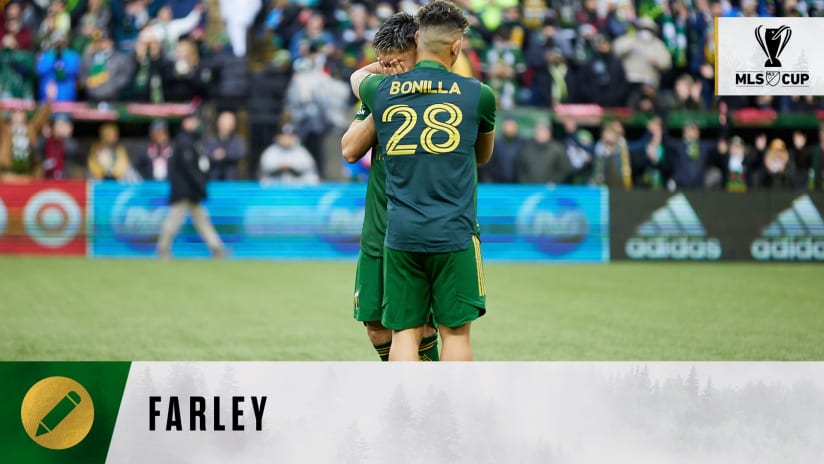PORTLAND, Ore. — Eight minutes after the final whistle, the result was strewn across the North End. In the wake of a split decision — one that allowed New York City FC to claim its first MLS title — the Timbers Army was split, too.
Half the fans kept were chanting their support. “When I root, I root for the Timbers,” sung until voices cracked as their team left the field. The other half were crying, or otherwise in shock – the reality of losing a 1-1 draw on penalties.
“It’s disappointing, but disappointing just because we worked so hard, [and] because the game can be cruel,” Timbers head coach Giovanni Savarese said after the game, reflecting the reality of soccer’s penalty-kick shootouts.
The Timbers have had the better of penalty kicks before. Most famously, there was the “Double Post” game in 2015, when soccer’s tiebreaking scenario went in favor of the home team. Almost as valuable was winning the shootout over the Seattle Sounders in 2018, and being able to celebrate on a rival’s home field.
In that sense, it may have been time for the Timbers’ shootout luck to even out, but tell that to the fans in Providence Park’s North End. If you’re on the right side of penalties, a tie feels like a win. The wrong side, as the Timbers were after NYCFC outshot them, 4-2, and it feels like pistols at dawn. Just walk 10 paces, turn and shoot. Let fate decide as the ball’s in motion.
“It wasn’t the result we were looking for,” the team’s captain, Diego Chara, said afterward, “and it’s hard not to be able to life the cup in front of our fans. But I think we need to take the better part of this and be ready for next season.”
That’s where the Timbers were after their first MLS Cup final at home, one that looked destined for a loss when NYCFC’s first-half goal nearly held up through the final whistle. Just before intermission, New York’s Valentín Castellanos snuck a ball under Timbers’ `keeper Steve Clark at the end of a set piece. At 93:54 of the game clock, that was still the game’s only score.
Because Felipe Mora’s late equalizer was so dramatic, the penalty result felt worse. With what have surely been the last change of the game, Mora fired a shot past Sean Johnson and into NYCFC’s side netting. Lurking at the far post, on the edge of an aerial duel near the penalty spot, proved the right decision. Portland’s best chance of the match turned into 30 more minutes of soccer.
As the teams regrouped for extra time, it felt like destiny had switched sides. The Timbers had asserted control, the crowd was back in the game, and the narratives were pointing toward Portland. Diego Valeri had come into the game. Diego Chara had won a number of dramatic challenges. Why wouldn’t the game let two legends celebrate at home?
If that’s not a reminder of how unfair penalty kicks can be, nothing is. At best, the way soccer breaks ties is a tepid compromise – an admission that players can’t run forever, and ties might as well be settled by an entertainment product. Ninety minutes is hard enough for a player to navigate. 120? It’s worth a try, but after that, we have to admit that a game could go forever, particularly players become exhausted. You must end it somehow, even if that end is not really soccer.
That’s not to take anything away from New York City. They aren’t the first team to win a major title on penalty kicks, and they’ll be far from the last. There’s no solution on table that will make tiebreakers make sense. Instead, teams have to come to grips with penalty kicks beforehand, knowing that if they can’t find a way to distinguish themselves over the course of two hours, the game might was well come down to educated guesses, and execution from 12 yards part.
It was pistols at dawn: an appeal a greater power, with only the veneer of control. That power left Portland empty handed. New York Cty FC have their first star.












